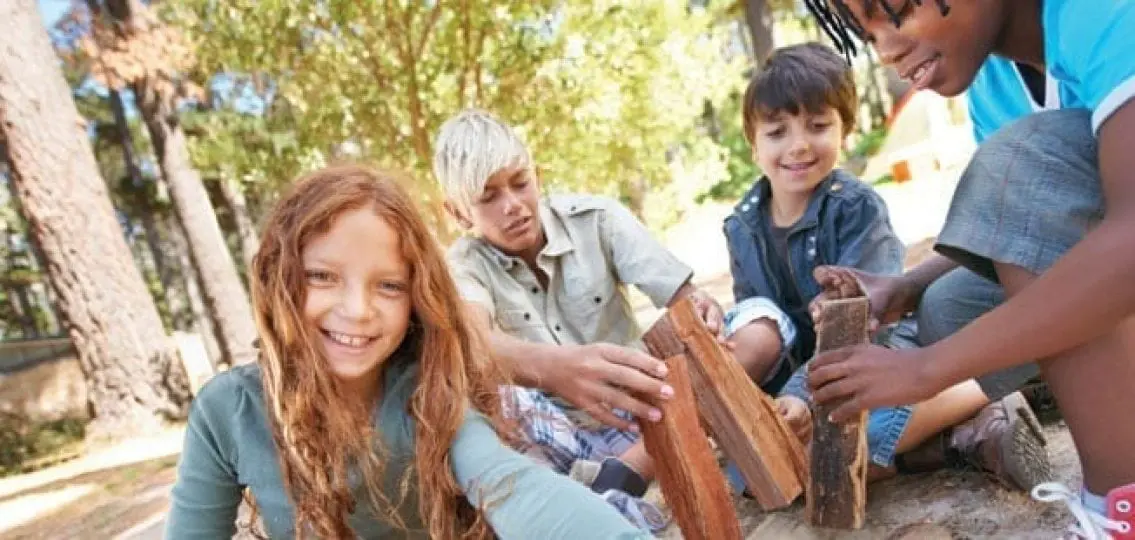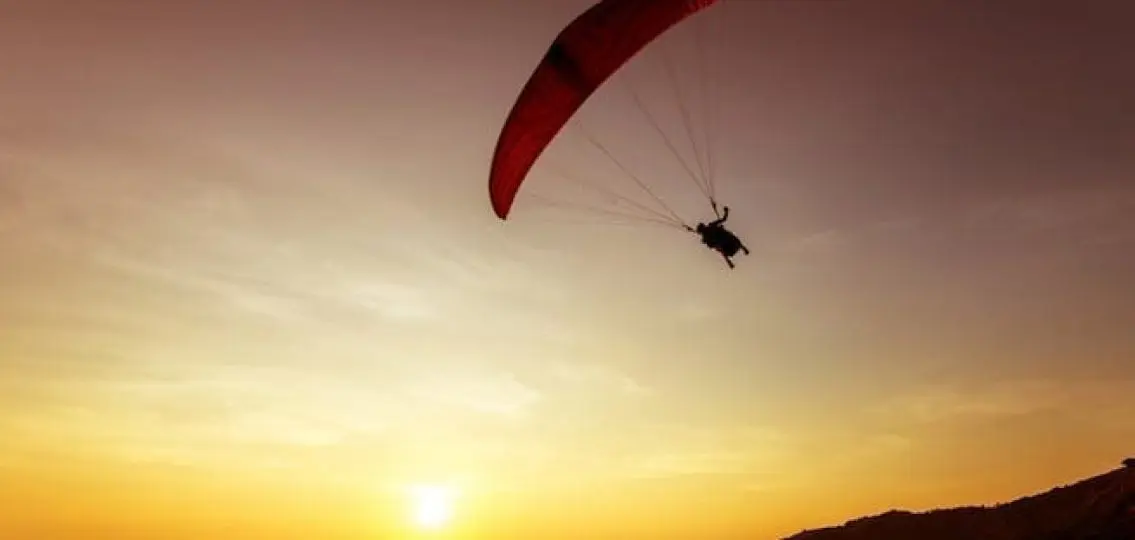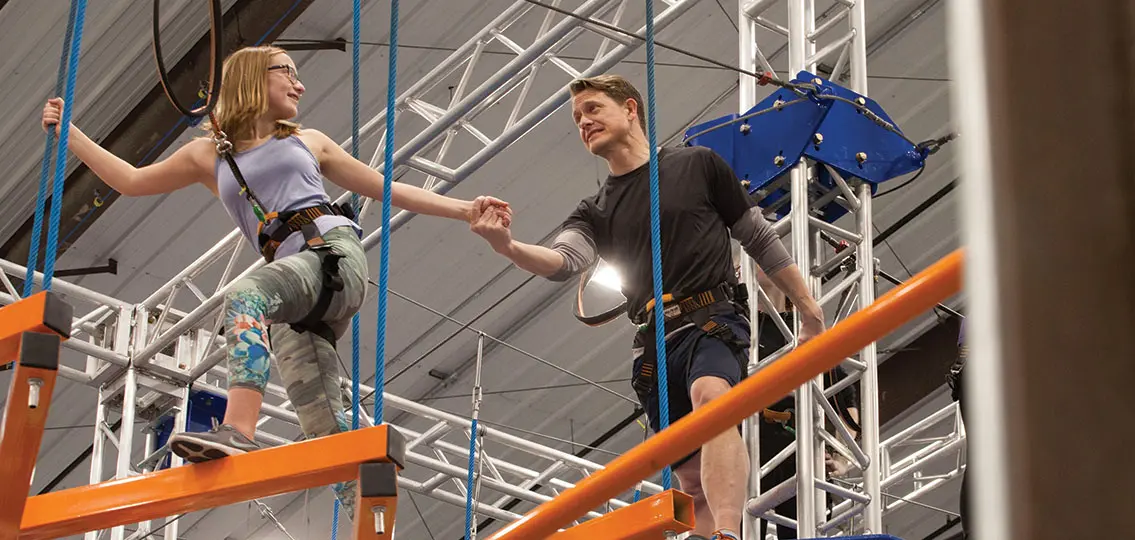My 13-year-old son operates at one speed—breakneck. He races across hockey rinks, careens down ski slopes, and whooped with delight when he tried indoor skydiving. Me? I’m a big chicken.

Think about it: How many times have we begged our teens to do something new, whether it’s tasting sushi or participating in a new sport? We ask a lot of our kids, imploring them to venture outside their comfort zones and risk failure. What if we parents did it, too? What could it change in our relationships?
That’s why I registered both my son and me for a scuba-diving lesson a few months ago. I was upfront about my fears—drowning, for one. I told him I wasn’t sure I could leap off the dive boat and make my way to the ocean floor.
Turns out being brave together in this parent teen activity—with me welcoming his supportive underwater fist pumps—forged a new bond and put us on equal footing.
The Benefits of Parent Teen Activities
Building relationships
Whether your adventure of choice is singing at a karaoke club, winter camping, or tackling a construction project, new experiences deliver a hit of dopamine, the feel-good neurochemical released when the brain is stimulated, says clinical psychologist Laura Kastner, Ph.D., who is also a professor at the University of Washington and the author of five books for parents.
“Courage involves facing your fears for something that is risky and exciting and builds your skills repertoire. This could be learning a language or how to dance the tango,” she explains.
“When you experience something pleasurable together, the dopamine is shared, because our brains are like open Wi-Fi systems, so all of a sudden you like each other a little bit more,” says Kastner. Greg Carlin, founder of Play: CLE, hears this from the parents and teens that explore activities like ziplining, climbing, and parkour together at the indoor adventure park in Avon, Ohio. “Not only does it become a shared experience, something that builds bonds between them as they play, but it’s also a conversation starter to take home with them.”
Kastner recalls initially refusing to participate at her son’s paintball party in eighth grade.
“But then I thought, ‘My son is going to be in heaven if I go to paintball with him. That’s his happy place, and I can stretch.’ And I actually had a blast, and I felt his love for me, because he knew it wasn’t my thing. It was so good for our relationship.”
Modeling risk-taking
Showing our teens that we’re willing (and likely) to fail at something the first time we try it teaches them that’s okay, says Vermont-based teacher Jessica Lahey, author of The Gift of Failure.
“Kids don’t believe us when we say we care about learning and that we expect that they’re going to make mistakes because usually what they really see us caring about is the end result,” says Lahey.
“We need to emphasize the process by modeling moments when we try things that are difficult or scary for us,” she says. “I took guitar with my younger son, which was hideously humiliating. He got better so much faster than I did.”
When Lahey’s older son started learning algebra in middle school, Lahey routinely sent him to his more math-minded father for homework help. Recognizing the negative message she was sending, Lahey decided to take Algebra 1 again—with her son. Not your typical parent teen activity but what an impact it had.
“It was embarrassing, and also completely transformational, because my son watched me get frustrated and really challenge myself,” she says. “It was so great for both of us; when a kid discovers things they may be better at than their parents, it’s a big moment.”
Getting Buy-In for Parent Teen Activities
Many teens won’t be remotely interested in having an adventure with you, cautions Kastner.
“Developmentally, teenagers often don’t want to spend time with their parents; they’re building a sense of self and want to join their peers,” she explains. She also adds that it’s important to persevere anyway. “Racking up positive times is very important for the relationship, at a time when there are diminishing moments per week of enjoyment with one another.”
That’s why Kastner considers bribery to be a valid tactic.
“It’s worth giving them a goodie: If you go hiking and do trail maintenance with me on Saturday, I’ll let you have friends over to play Fortnite on Sunday,” says Kastner.
It can help, too, to give teens a say in the choice of activity, because that might result in more buy-in, suggests Lahey. Sometimes, kids come up with ideas that scare them, but may not feel risky for you, such as doing an improv class or volunteering at a soup kitchen.

“We shouldn’t compare their goals to our goals, or our sense of risk to their sense of risk,” says Lahey. “What’s most important is that you’re doing something out of your comfort zone, together.”




